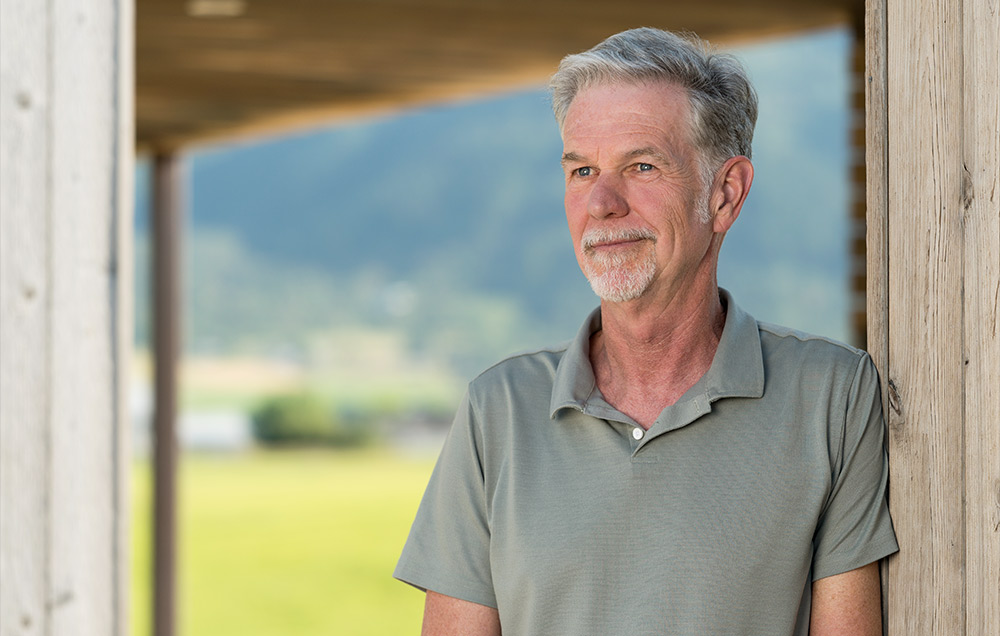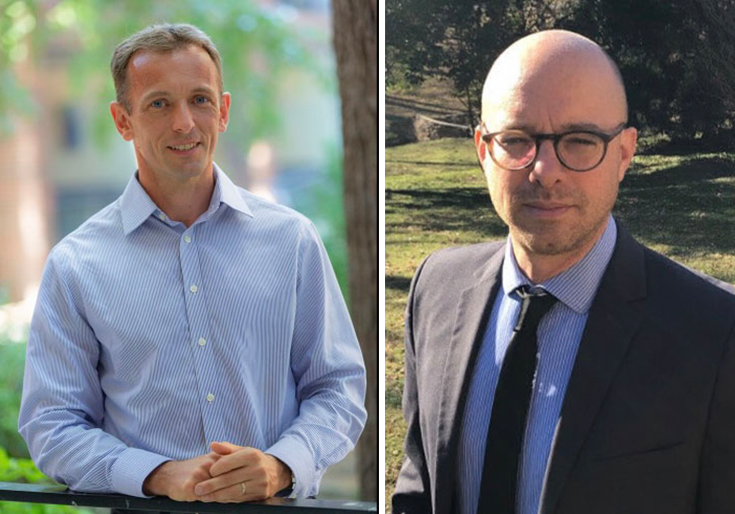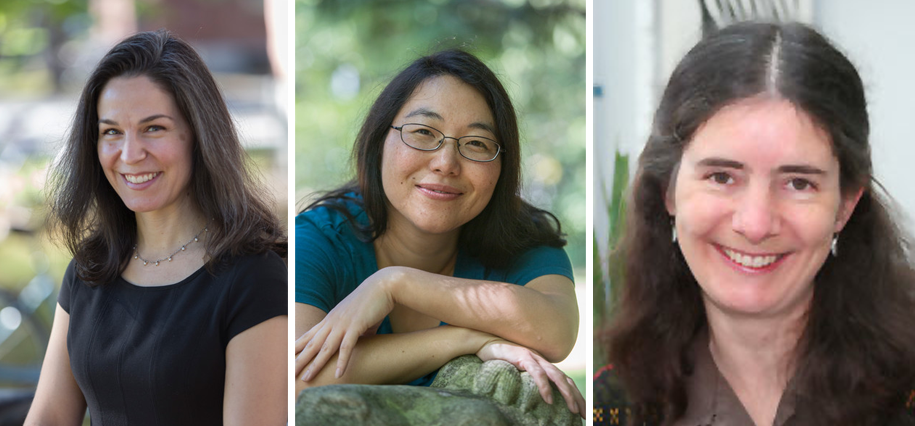“Uncomfortable Voices,” 2015 Convocation Address by Professor of Religion Robert Morrison
By Rebecca GoldfineUncomfortable Voices
Professor of Religion Robert Morrison
2015 Bowdoin Convocation
Welcome Class of 2019 and welcome too to President Rose; thank you for your introduction, and thank you to my colleagues on the faculty and staff for showing up in such numbers. I feel as if I am on stage at a rock concert, I’m the warm-up band and I didn’t get to go first.
Let’s go over what we’ve learned so far. I was educated at a university where Hollywood studios have located movies entitled Ghostbusters, which are about busting ghosts. I also teach religion and I’m talking about voices. What could possibly go wrong in the rest of the speech?
By the time you get to the Lobster Bake after Convocation, you will have found out about Bowdoin’s top-ranked food. A major regret of my on-campus job interview, before hearing that I got the job, was that I spent too much time talking and not eating the steak fries. So, what does Bowdoin’s food teach us? Here are three points in order of increasing importance; first, you should pay attention to what you put in your body and to the source of that food. Second, and more important, I am honored to work with staff who, if rankings mean anything, are better at their job than I am at mine. Third, and this is key, should we presume that Bowdoin’s excellent campus food means that you can come to college without losing the comforts of home? As I talk about the value of physical and emotional discomfort, I should say that discomfort is like exercise: some is good but we all have our limits and our individual limits are different.
If you are a multi-lingual student, or a non-native speaker of English, having to function at a high level in a language that is not your best one is just plain physically taxing. An immediate challenge for speakers of multiple languages will be the writing required in your first-year seminar. When I was a visiting graduate student at Damascus University in the mid-90s, the challenge was taking word-for-word lecture notes in Arabic. Writing that fast, right to left, was a workout for my hand along with my brain. Because my classes at Dam U were not going on my transcript, though, I did have the luxury of deciding not to take verbatim lecture notes. The decision to revert to outline-style notes became a new source of unease, as the other students wondered whether I was really there to learn since, after all, learning is through taking verbatim lecture notes, right? And if I wasn’t there to learn, what was an Arabic-speaking American doing at the university? Syria was and is a police state. Discomfort heightened my self-awareness; I was conscious of how there was much I did not understand. See, if you haven’t attained a certain level of comfort with US pop culture, Kenny on South Park’s (or Charlie Brown’s teacher’s) muffled speech would be to you not part of the joke but rather something you’re worried you’ve missed and something that puts you on edge, hyper alert. That alertness is both exhausting and transformative.
In the rest of my address, I will discuss three events from last year. First, I had a student who asked that I not use the pronouns ‘she’ or ‘he’, but instead ’they’ or ‘them’ when referring to them. Accepting the request threw me back on my heels; I felt physically wobbly. How well I speak English is one of the few things I normally don’t worry about in class, and, now, I was certainly making my share of errors. That same semester I was teaching a book entitled I And Thou. As was the case with Ghostbusters, the title tells you a lot; I and Thou is about pronouns. The author’s argument is that engaging with something as a ‘you’ is distinct from experiencing something or someone as an objectified ‘it’. Basically, at the Lobster Bake, you’re experiencing the lobster as an ‘it’. David Foster Wallace, in his essay “Consider The Lobster,” explored the subjectivity of being boiled alive as a lobster. That’s more of an I-you relationship.
Being fully open to the ‘you’ was, to the author of I and Thou, a transformative experience as it was the only way to understand the ‘I’. Without the ‘you’, there is no ‘I’. If ‘she’ and ‘he’ are no longer in play with my student, then my identity as a ‘he’ must become something other than ‘not she’. I had to subject, even slightly, my own identity as a middle-aged white guy with a wife and family to a consideration from which I usually have the privilege to abstain, a privilege I wouldn’t have if I were, say, a woman or a visible minority. In terms of being an uncomfortable voice that challenged the status quo, this student was running a marathon. All I did was put down the remote and get off the couch.
These concepts of I-You and I-It relationships are helpful for thinking about a second event from last year. Students for Justice in Palestine got Bowdoin Student Government to hold a referendum on an academic boycott of Israel that proposed restricting Bowdoin’s interactions with Israeli universities in order to call attention to Israeli universities’ role in Israel’s occupation of Palestinian lands. For students, an institutional boycott would mean no study abroad in Israel. Since Bowdoin Student Government does not control institutional policy, the referendum was purely symbolic.
The boycott proposal made people uncomfortable in many ways. For starters, SJP linked the already controversial issue of the Palestinian-Israeli conflict to the questioning of academic freedom, a central value of the College. Bowdoin once let me cancel a session of Introduction to Judaism so I could meet the President of Iran, Mahmoud Ahmadinejad, at an academic event. As important as the principle of academic freedom is and should be to us, SJP argued that there are human costs. Second and related, when you use your academic freedom to cooperate with Israeli institutions, as I have in both Judaic and Islamic studies, that cooperation has costs. SJP made me very uncomfortable because while the benefits of my collaborations with Israeli institutions are in front of me, the costs are hidden, 6000 miles away. Third, the boycott resolution rendered uncomfortable supporters of a state (Israel) that itself has, with reason, felt uncomfortable. Fourth, SJP’s tactics came off as confrontational on a campus that prides itself on civility. Our campus cliché is the Bowdoin ‘hello’ (or Shalom or Marḥaba), not the Bowdoin ‘decades-long grievances.’ But in light of recent history, Middle East politics without serious acrimony would be like a lobster dinner without a roll, cole slaw, and drawn butter. It would be like corned beef on white…in a Jewish deli. Or like a bald, courteous Donald Trump.
In the referendum itself, the number that most impressed me is that 85 percent of the student body voted. Without the spirited, serious involvement of students who opposed the boycott, turnout would not have been that high. Another way to tell that SJP’s proposal had an enduring positive effect was that 247 students (15 percent) registered formal abstentions, meaning that they recognized the significance of the issue even if they had no clear position.
Let’s go back to Dam U, where I was when Israeli Prime Minister Yizhaq Rabin was assassinated by an Israeli extremist in 1995 for daring to embrace peace with the Palestinians. One of my professors at the university lectured for an entire class session about Israel’s evils and how Rabin really did not want peace. Verbatim notes were not necessary. And the professor’s dominant narrative was not up for discussion in the classroom or elsewhere in the university community. If you think that’s an extreme example of willing away dissenting voices and lost opportunities for dialogue, well, then, let’s keep it that way. At Bowdoin, SJP’s advocacy for people barely represented on campus was extremely brave and a positive move. Listening in good faith to their uncomfortable voices, as so many Bowdoin students did, was difficult.
Why would genuinely listening to the voices of SJP as a ‘you’, regardless of one’s position on the boycott itself, be worthwhile? The 71% of students who voted against the boycott might have thought about how their support for academic freedom should extend beyond just being anti-boycott. Are you using your own voice effectively? What’s your positive vision either for the Middle East or for the personal values you’re defending by saying ‘no’? If you ever raised your voice in the debate, how did the physically-unsettling experience (at least to me) of yelling affect your position? How students at a small college actually voted on a symbolic referendum should mean little. Yes, Israel boycott resolutions on college campuses do receive attention in the national press, but such attention is really only a reflection of leaders’ failures to lead. What truly matters is how Bowdoin students, a group of future leaders, teachers, and humanitarians evolved and grew from expressing, listening to, and even yelling at an uncomfortable voice.
The third thing that happened last year was that Bowdoin awarded the historian Jill Lepore an honorary degree. Her work communicates not just the multiple possibilities for how things could have turned out but the multiple pathways for how we tell the story of the past. In her book The Name of War, she showed how a war I had never heard of, the 1675 King Philip’s War, matters for the US more than most of us could imagine. Certain voices make us uncomfortable and those voices are themselves uncomfortable speaking, but let’s mirror Jill Lepore’s openness to the past when we look to the future. Uncomfortable voices will help us all shape the future in ways we don’t yet fully understand.
There’s no doubt that uncomfortable voices can sometimes be those more widely represented on campus and in the US. The idea that physical and emotional discomfort can deepen your understanding, as opposed to being a cost of a deeper understanding, didn’t really make sense to me until after many contentious plane flights and car rides with a friend and former colleague, a committed Christian. But again, discomfort should not be gratuitous. Think about whether you’re taking a risk, whether you’re talking to another student as an it (that is, a means to your own ends) or as a you (better), and whether you’re actually open to being changed by that ‘you’.
To conclude, three years ago, my wise colleague Professor Jorunn Buckley stood here and spoke about how the Boston suburbs had at least a few people with much to learn and many more men with no sense of style. I grew up in the Boston suburbs, so caveat auditor. Still, there are so many things to talk about, get fired up about, and to get worked up about. Even before summer break, I thought racism, socio-economic inequality, and the environment were profoundly important issues. Then the summer happened. Remember that Bowdoin has professors who master these areas. And even though you didn’t take verbatim notes, I encourage you to reflect on my remarks as you encounter and voice all uncomfortable voices.



